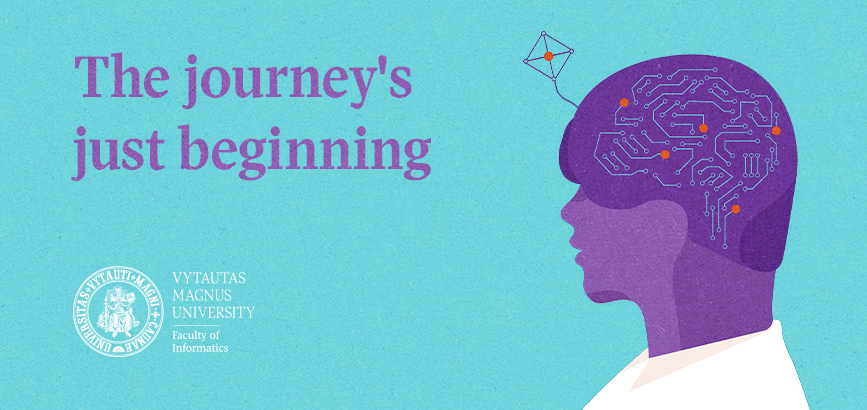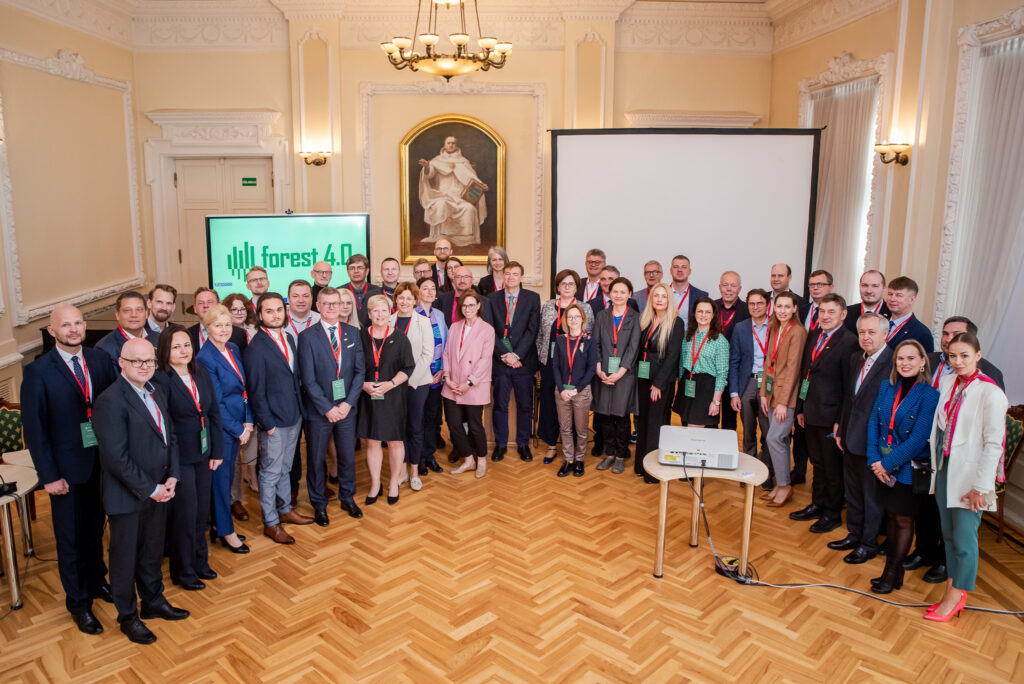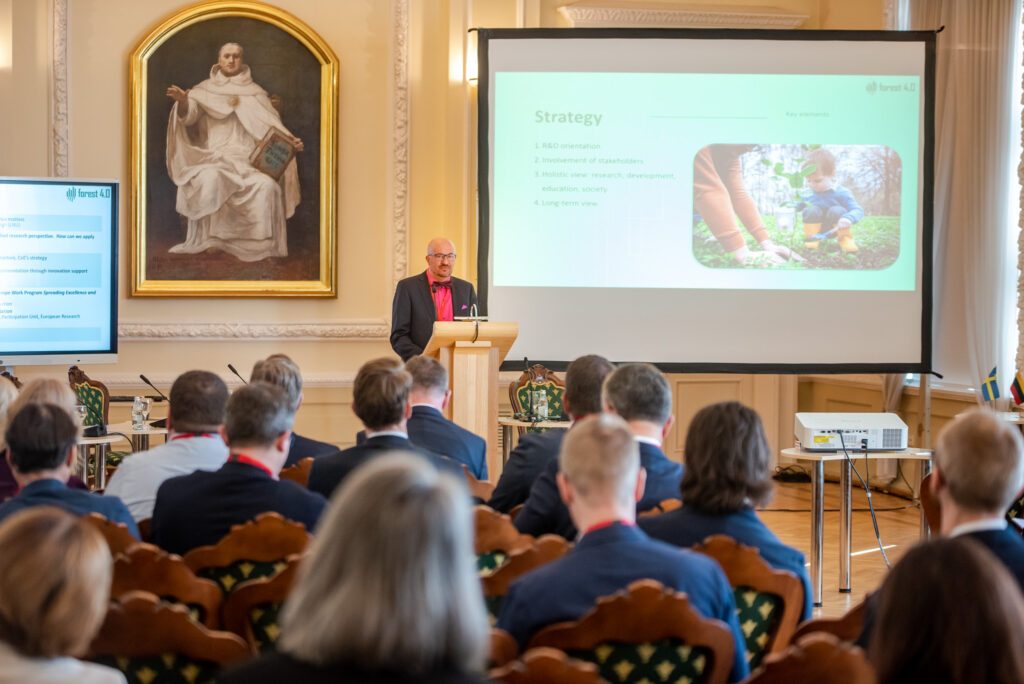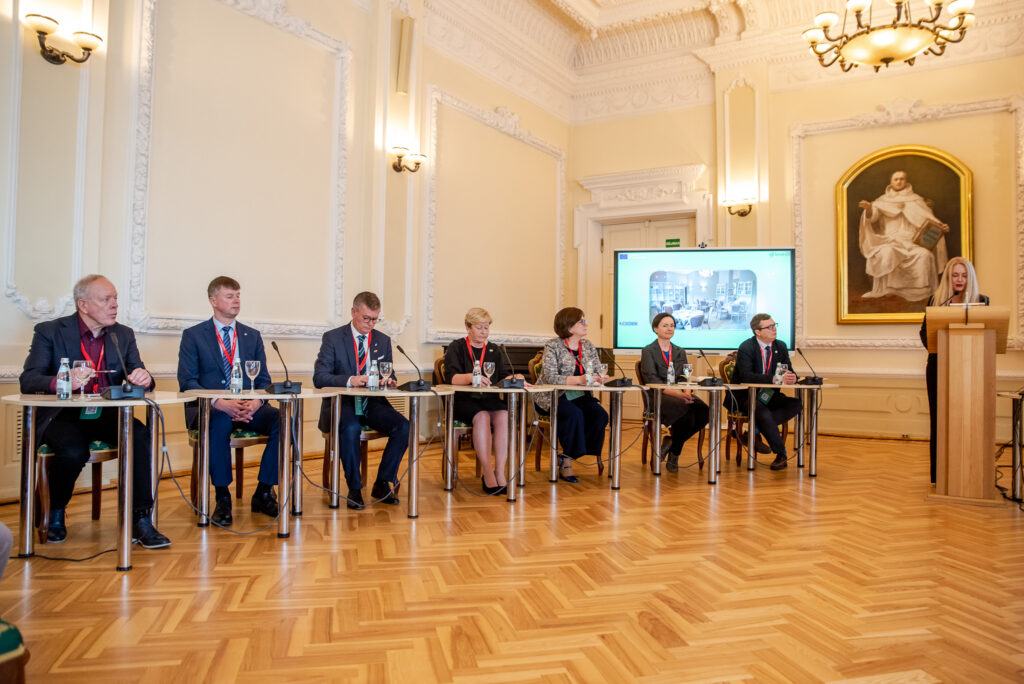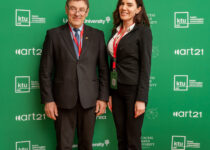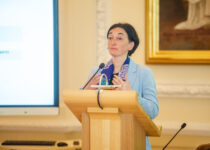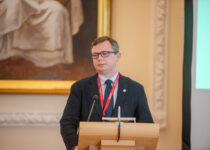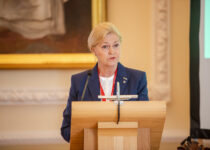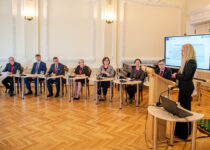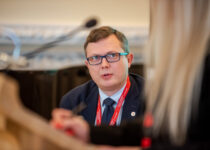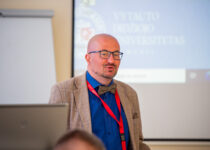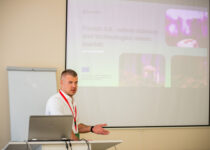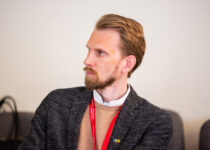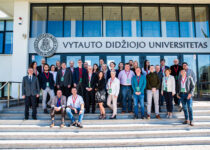Academic Focus Towards AI: University Theses on AI increased by 60 %
“Artificial Intelligence’s (AI) role in education is profound,” says Vytautas Barzdaitis, CEO at Adroiti Technologies and lecturer at the Faculty of Informatics (Vytautas Magnus University), referring to a remarkable shift in the university’s thesis.
“A year ago, few graduate students ventured into AI for their theses. Fast forward to this year, and over 60% of student projects delve into the intricacies of AI. This transformation underscores the growing importance of AI skills. By engaging deeply with AI, students learn cutting-edge skills and contribute to advancements that drive industry innovation. This dramatic increase signals a broader trend where AI is becoming an integral part of the educational fabric.” – says Vytautas.
Among Vytautas, bachelor students have created products that implement AI in various innovative ways. Their work covered such topics as:
- AI-Assisted Test Creation and Evaluation: Developing systems where AI creates tests and checks them, integrating multilingual support in student testing systems to enhance accessibility and inclusivity.
- Machine Learning for Medical Diagnostics: Conduct extensive research using magnetoencephalography data to create automated diagnosis systems for Parkinsonian patients, aiming to revolutionize the accuracy and efficiency of medical diagnostics.
Master’s theses are pushing the boundaries even further. By leveraging AI, students are addressing complex challenges and creating solutions that have the potential to impact multiple industries profoundly.
Their work includes:
- AI in Software Quality Assessment: Crafting and refining AI models that evaluate code quality offers developers tools to improve software reliability and performance.
- Cyber security is also among the top topics: Zero-Day Attacks Detection Method with Combined Classifiers Creation and Development; Advanced Threat Detection.
- Formation of cargo delivery routes in a dynamic environment: analyzing the relevance of optimizing the formation of delivery routes and the limitations of existing solutions and evaluating the effectiveness of using electric cargo bicycles as an alternative to trucks for transporting small consignments in the city.
“Adroiti” is proud to witness and support this wave of innovation. Integrating AI into academic projects enriches the learning experience and prepares students to tackle real-world challenges.
Invitation to Students: Visit of International Expert Panel
VISIT OF INTERNATIONAL EXPERT PANEL
On April 22, 2024, an International Expert Panel, reviewing the study field of Informatics, will visit VMU Faculty of Informatics.
Members of the Expert Panel:
- Prof. dr. Steven Bradley (UK)
- Doc. dr. Torben Ægidius Mogensen (Denmark)
- Doc. dr. Jānis Pekša (Latvia)
- Andrius Plečkaitis (Lithuania)
- Felix Ferchhumer, student representative (Austrija)
Expert meeting with students of the Informatics Systems, Multimedia and Internet Technologies and Applied Informatics study programmes will take place 14:10-15:10, University 10, room 154. Students are invited to attend!
Apply now: Erasmus+ Traineeship Competition
A competition is open for Erasmus+ student traineeship grants. Application deadline is the 31st of August, 2023.
The placement period is from 2 to 6 months.
Selection
All VMU fulltime degree students who have not used more than 10 months of their Erasmus mobility (study / traineeship) period are eligible for the Erasmus grant.
Selection documents
For student traineeship (traineeship during student’s year of studies)
- Filled-in application form „Outgoing-Application for Erasmus Student Traineeship (EU countries)“
- Confirmation by the company or organization (obligatory).
The priority in the selection is given to
- students whom traineeship is an obligatory part of their study programme;
- students who have never been Erasmus traineeship students before.
Selection criteria
- student’s motivation;
- good knowledge of the language which will be used during the traineeship;
- student’s work, study, traineeship, participation in the international / academic projects, social activities experience in Lithuania and abroad;
- conformability between the chosen traineeship and student’s study programme;
- study results (first year MA students should attach transcript of records of their BA/MA degree to the application form).
The competition results will be sent to every participant via e-mail.
Competitions for Erasmus+ traineeships are taking place each month.
New 18th Catalogue of Internship and Volunteering Offers
Right here in front of you is the eighteenth Catalogue of Internship and Volunteering Offers, which was issued by the Career Centre of Vytautas Magnus university. In this catalogue, students will find internship and volunteering offers for enterprises, public institutions, and non-governmental organizations. We are hoping that each of you will find something useful in the pages that follow!
Catalogue on Internship and Volunteering Offers No. 18 / May. 2023
The catalogue provides a standardized presentation of an enterprise, institution, or organization which is offering internship or volunteering opportunities, and indicates the name and conditions of the offered internship/volunteering position. Each publication of an offer includes information about the ability to combine activities with your studies, about the period of internship/volunteering, specifies which of offered positions are adapted for students with disabilities, and which activities are organized in foreign languages.
We hope that this catalogue will help you to find a place of internship, or you will use an opportunity to test yourself in volunteering, which will be useful in finding your path to the labour market!
VMU Career Centre is not responsible for the content of the offers published in the Catalogue. Companies and organizations decide about the conditions of internship and/or volunteering.
FOREST 4.0 Project to Digitalise Forest Operations
To establish a Centre of Excellence to transform the forest environment monitoring, data acquisition, and analysis, and capture value from the collected data – this was the goal set by the FOREST 4.0 project partners at the project kick-off event held at Vytautas Magnus University (VMU) on 10–11 May.
According to the project leader, Dean of the VMU Faculty of Informatics, Prof. Tomas Krilavičius, FOREST 4.0 aims to contribute to the Lithuanian Smart Specialisation Strategy by developing an innovative forest-based Lithuanian bioeconomy through the digitalisation of forest operations. “FOREST 4.0 will promote a science-based contribution of sustainably managed forests to the achievement of the EU Green Deal and some of the UN Sustainable Development Goals (SDG), and the transition to a circular and sustainable bioeconomy through the provision of innovative data collection and processing applications,” said the representative of VMU.
Prof. dr. Tomas Krilavičius
The Centre of Excellence in Smart Forestry will carry out the highest level of research. “Our main objective is to create a Centre of Excellence in forest-related Artificial Intelligence and Internet of Things technologies to develop and promote innovative data-based solutions for forestry management throughout the entire value chain, from forest resource management to end-products. The Centre of Excellence will seek to mobilise and involve interested parties not only in Lithuania, but globally,” Prof. Krilavičius described the project.
The kick-off event was attended by honoured guests who gave welcome speeches: Rectors and Vice-Rectors of VMU, LNU, and KTU, officials of the European Commission, the Ministry of Education, Science and Sport of the Republic of Lithuania, and Ministry of Environment of the Republic of Lithuania, representatives of the Kaunas City Municipality, the Vice Mayor of Växjö Municipality (Sweden), and many others.
The kick-off meeting also discussed the challenges in developing the Centre of Excellence in Smart Forestry in Lithuania and why this sector needs attention from scientists. Researchers and industry partners had a great opportunity to share good experiences in forestry management, future perspectives, visions from different angles and identify the needs to cooperate with different stakeholders: industry, ministries, local and external stakeholders, etc.
The kick-off event was followed by a meeting of the project partners, during which the team discussed the candidates for the Advisory Board, the research strategy, the working plan for each WP, etc.
The project budget amounts to almost €20 million (€9.9 million funded by the European Commission and an equal amount by Lithuania). The duration of the project is 6 years.
Project coordinator – Vytautas Magnus University, leader – Prof. Tomas Krilavičius.
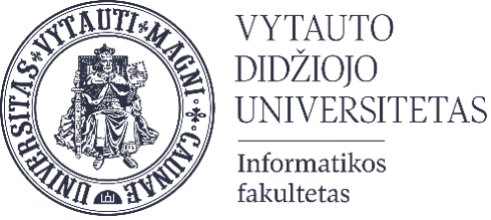
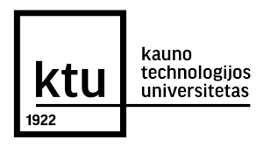
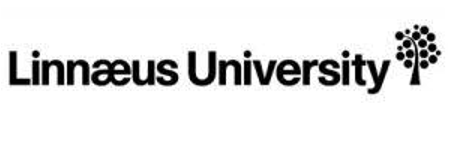


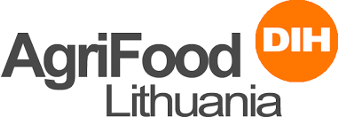

Faculty of Informatics is Happy to Invite You to Public Lectures!


On the 25th of April, 2023, we invite you to the public lectures by guests of the VMU Faculty of Informatics!
25 April, 11:30-13:00
Lecture “Game Development from Scratch: Photorealistic Characters and Environments. Characters with User’s Face” by Dr. Grzegorz Machnik, Associate Professor and 3D artist from University of Silesia in Katowice (Poland).
25 April, 13:30-15:00
Lecture by visiting professor Dr. Jordi Linares (Interactive Technologies Laboratory, Polytechnic University of Valencia) “Introduction to Language Models and How to Develop New Applications Based on Them. An Example of Developing a Chatbot Using Python, Google Collaboratory, and OpenAI Models”.
The lectures will take place in Kaunas, Vileikos st. 8, room 318.
No registration required. The lectures will be given in English.
Apply Now: BA and MA Degree Studies at VMU
Vytautas Magnus University (VMU), a high-ranking public and globally oriented university, offers top-quality Bachelor‘s and Master‘s programmes, taught completely in English language. There are variety of Bachelor degree programmes in sociology, linguistics, business, management, logistics, politics, biology, environmental sciences, informatics, multimedia or even music for ambitious and curious students to offer. There is also a list of programmes for the ones who are interested in Master degree studies. Diplomacy, journalism, linguistics, marketing, logistics, educational studies, psychology, law or molecular biology, informatics is not the full list of study areas which students can choose to study for their Master’s degree.
Bachelor degree programmes: Bioeconomy Business Management and Foreign Languages and Cultures: Francophone studies, Italian Studies and Romance Languages, German Language and Communication, and Master degree study programme: Biotechnology and Pharmaceutical Analysis are new programmes taught in English language and offered for international students to study for the first time.
Academic mobility and internships are a part of your studies, so be prepared to study not only in Lithuania, but to experience and explore other countries all over the world during your studies at VMU.
University also gives a chance for you to study a foreign language alongside with your study programme. Take your chance to study one, two or even more languages out of 30. Have a wish to learn Spanish, German, Korean, Japanese, Latin, Swedish, Danish or Arabic language? VMU offers this possibility, so just take it.
VMU students are studying not only in the modern study environment, cutting edge physical, technological and biomedical laboratories, but also are able to use recently opened Sports centre, university libraries, visit university Botanical garden or art spaces and have a possibility to live in on of the dormitories provided by the university.
For ambitious, intelligent, and talented students university offers various scholarships. Be curious and take your chance to get it.
International students from 78 different countries have already chosen VMU for their study destination. Come study and be part of VMU community too!
For more information about programmes, admission requirements, deadlines, and etc. please find here.
VMU Extends a Helping Hand to Ukraine: Everyone is Welcome to Donate
FOR THOSE WHO SEEK HELP / ДЛЯ ТИХ, ХТОПОTPEБYЄ ДОПОМОГИ
Vytautas Magnus University (VMU), continuing the initiative dedicated to the support of Eastern Partnership countries, has extended a helping hand to the Ukrainians. In 2020, VMU established a support fund dedicated to students who suffered from repression by the Belarusian government. Now, this fund will also support students who suffered from military operations in Ukraine. The university is also prepared to welcome students and lecturers who are fleeing from war in Ukraine. Like other higher education schools in Lithuania, VMU has terminated relations with higher education institutions of Russia and Belarus.
Everyone is welcome to donate to the support fund for the Ukrainians: businesses, the public and individual persons. The received funds are used for scholarships to the Ukrainians who come to study at VMU: the support covers their expenses on studies, accommodation, and settlement. If needed, these funds may also cover the students’ subsistence expenses.
“We must not stand on the sidelines as the horrors of war are taking place so close to us. We ask everyone who is not indifferent to human suffering and supports democratic and humanistic values to donate to this fund. Our support is very important to people who have been affected by war and the political situation. The donated money will reach the members of academic community in Ukraine and the incoming students who need it the most. We express strong support to communities of our partner universities in Ukraine”, VMU Vice-Rector for Communication, Assoc. Prof. Vilma Bijeikienė said.
Currently, 310 citizens of Ukraine are studying at VMU. Ukraine is an important partner of VMU: as part of the Erasmus+ program, VMU cooperates with 10 Ukrainian universities, while bilateral agreements have been signed with 30 other higher education schools.
Since 2013, in order to contribute to the consolidation of democracy, Vytautas Magnus Unviersity has been paying special attention to students of the Eastern Partnership countries: Armenia, Azerbaijan, Belarus, Georgia, Moldova and Ukraine. Each year, 20–40 students from these countries receive scholarships.
We invite natural and legal persons to contribute to the support fund dedicated to students who have suffered from state repression. The donors may provide students from Ukraine with financial support or their own products or services; they may also create the conditions for the students to do paid internship at their companies or organizations, thus providing the students with possibilities to live independently during their studies in Lithuania.
The funds for this project can be transferred to the following account of AB SEB Bank:
LT41 7044 0600 0284 8638
Beneficiary’s name: Vytauto Didžiojo universitetas
Payment description: Support for students from Ukraine
JOB/INTERNSHIP OFFERS
We invite companies to present job or internship offers to the Ukrainian academic community by email: karjera@vdu.lt
INVITATION TO SIGN A PETITION AGAINST WAR CRIMES
We invite you to sign a petition organized by the Ukrainian World Congress. The petition, which aims to stop war crimes, can be found here.
Open Competition for University Fee Exemptions for Spring Semester

Vytautas Magnus University (VMU) has launched an open competition for university fee exemptions for spring semester of the academic year 2022/2023. The purpose of the competition is to achieve the mission of socially responsible university by reducing social exclusion, creating appropriate financial conditions for VMU students to be accommodated and (or) study (taking into account different social (material) situations, study results and (or) accommodation in the dormitory).
University fee exemptions for spring semester 2022/2023 may be granted at a rate of up to 100 % to cover:
TUITION FEES, and this exemption may be granted for students of a full-time bachelor, master, or integrated studies:
- who are currently in a difficult social (financial) situation;
- whose grades (taking into account credits) average for the last examination session (for first-year students – entrance competition score) is not lower than 8 (eight).
ACCOMMODATION FEES, and this exemption may be granted for students of a full-time bachelor, master, PhD or integrated studies, who are currently living in the dormitory of VMU and who have concluded Agreement for Accommodation, based on:
- social (financial) situation;
- dormitory and room type, where student is being accommodated (NOTE: students, who are currently living in a single-bedroom of the dormitory cannot be awarded accommodation fee exemption).
University fee exemptions through the open competition may be awarded as a matter of priority, by taking into account social (financial) status, for:
- orphans, students who were granted custody or guardianship until adulthood or who have lost both of their parents (both of the parents have passed away);
- students with disabilities;
- students from the families with large number of children (there are four or more children in the family, who are currently students, school pupils or minors).
Given the social (material) status, students must provide following documents for the competition:
- orphans: original documents of the death certificates of your mother and father, with official translations to Lithuanian, English or Russian languages with the translator’s stamp attached;
- students with disabilities: original document, which proves your disability with official translations to Lithuanian, English or Russian languages with the translator’s stamp attached;
- students from the families with large number of children:
- original certificate of family composition with official translations to Lithuanian, English or Russian languages with the translator’s stamp attached;
- original documents / certificates from kindergartens/schools/universities and others education institutions which proves student or school pupil status with official translations to Lithuanian, English or Russian languages with the translator’s stamp attached.
Students who are willing to apply for free exemptions, has to complete an electronic application form in Student self-service portal. How to do this?
- log in to the VMU Student self-service portal using your personal login provided by the University;
- select the Applications in the menu box and click on the Requests button;
- select the application category Fees exemptions and compensations, click Tuition / Accommodation fee exemption by the means of competition (form F-006), complete the form, attach (upload) documents, which prove social (financial) status of the family, together with official translations to Lithuanian, English or Russian languages with the translator’s stamps attached and submit it.
Applications are open from January 30th, 2023, to February 19th, 2023. Results of the open competition will be published by March 1st, 2023, by personally informing students about it by an email being sent to the VMU email address.
Tuition fee and accommodation fees exemptions shall be awarded by taking into account all the support granted for the student by VMU, awarded scholarships, granted exemptions and (or) size of the fees paid for the University and given the support and (or) scholarships awarded from the State budget funds, private legal or natural persons.
More information:
Conference on Media and Information Literacy will take place at VMU
Media and Information literacy may be considered one of the essential 21st-century skills. Teaching media and information literacy provides teachers and students with literacy skills such as information literacy and technology literacy that will help them understand and analyze media. It also cultivates such learning skills as critical thinking, creative thinking, collaboration, and communication.
The main task of this conference that will take place on 2-3 March, 2023 is to discuss the role of information, coding and decoding of media messages, emotional and intellectual impact that media make on personality and society. During the conference the lecturers and participants will try to answer the questions on how to create media thoughtfully and conscientiously. In order to solve this task, it is wise to turn to media and information literacy education, which provides us with the tools and skills needed to be confident and competent media consumers. Media and information literacy highlights such relevant messages as the effect of propaganda, information ecology, enables people to engage in a global media environment.
The conference is sponsored by the National Security and Defence Committee of the Seimas of the Republic of Lithuania and the US State Department Bureau of Democracy, Human Rights, and Labour (DRL). The conference is attended by international experts from the International Research and Exchange Council (IREX), representatives of DRL, Lithuanian state and other governmental institutions, teachers of Vytautas the Great University and partner universities.




